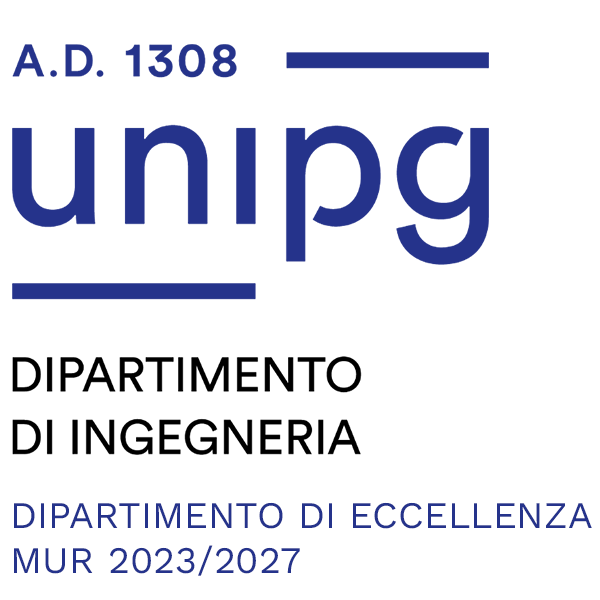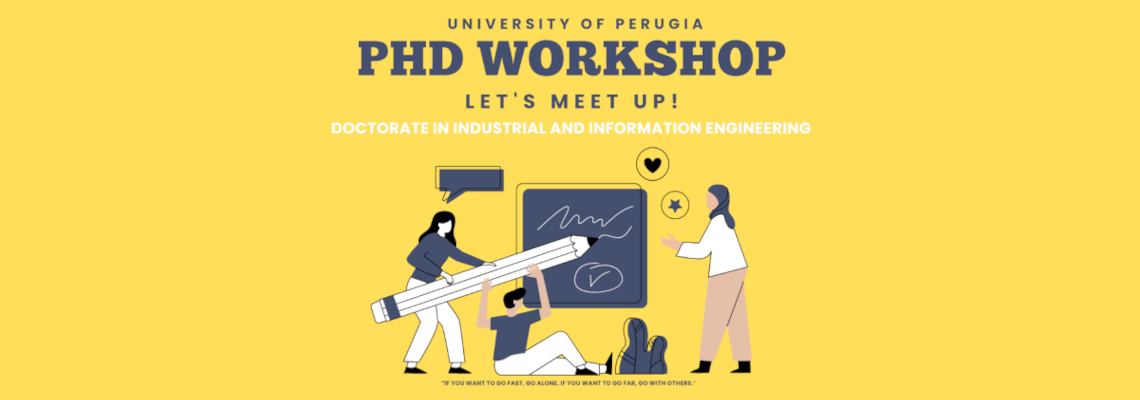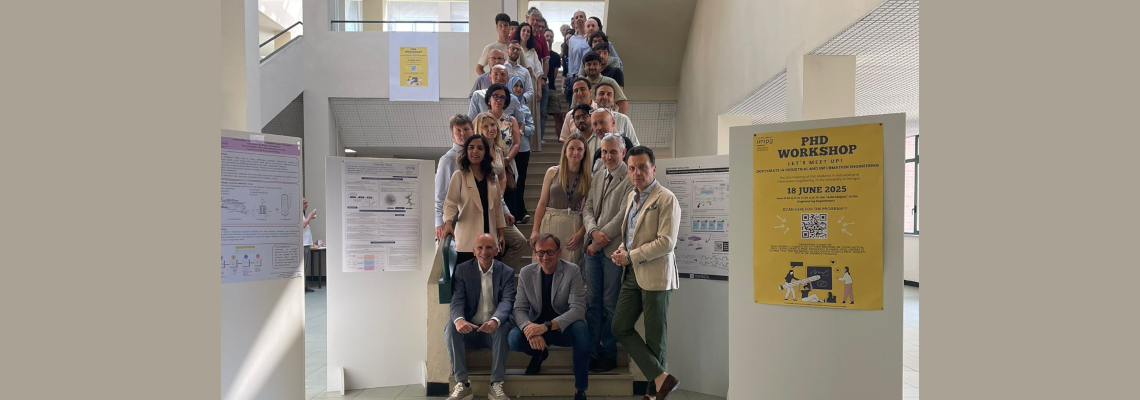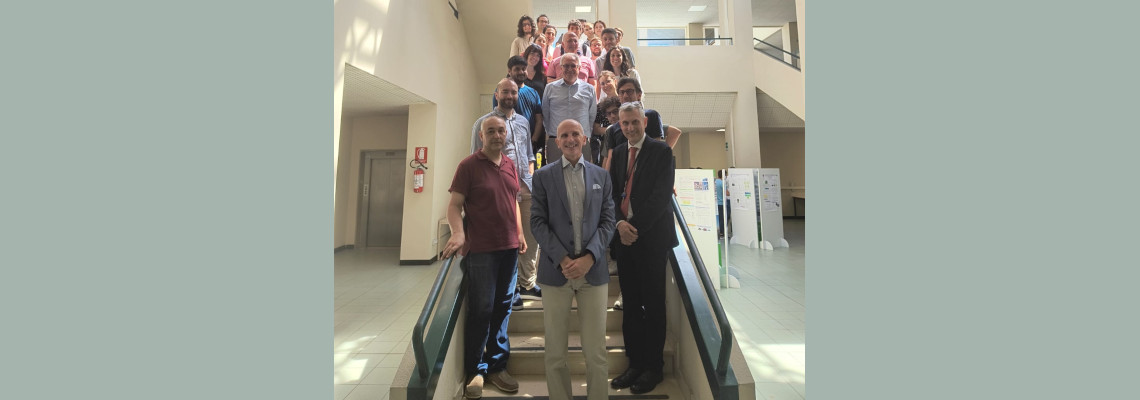The Doctorate in Industrial and Information Engineering at the University of Perugia has always cultivated fruitful collaborations with many regional, national, and foreign companies and research institutions to set up doctorate courses on topics of mutual interest. This collaboration is constantly growing, as demonstrated by the numerous agreements signed in recent years.
Discover the various forms of collaboration between universities and enterprises. You can also watch our summary video on YouTube.
- Funding a scholarship
- PhD in advanced training and research apprenticeships
- Industrial Doctorate
- Companies that have done this
Funding a scholarship
All types of companies/institutions, including non-profit ones, can fund scholarships. It is not necessary for the Company to have a project, but the University will prepare it in synergy with the Company on a research topic of its interest. The student who chooses this research and therefore is awarded the grant will not have a contract with the company, but will be a full-time student and will carry out the research project at the university and at the company's premises.
HOW TO DO IT
The Company must contact the office of the Doctoral School and/or the Coordinator of the Doctoral Course with whom to agree and define the research topic to be proposed to the students awarded a scholarship. Following the definition of the theme, an agreement will be signed, whereby the Company commits to financing a PhD scholarship for the duration of the entire cycle, i.e. 3 years. The agreement must be signed by March of the calendar year in which the scholarship is to be funded.
HOW MUCH IT COSTS
The cost of the scholarship is approximately 70,000 euros for the entire three-year period, including an increase for a period of study abroad of the doctoral student for research purposes and a grant increase for the dissemination of results (e.g. participation in congresses). The payment of the grant may be made in a single installment and in this case, it is compulsory to pay the full three-year amount before the PhD call is posted. The University may also agree that the payment may be divided into three annual installments, but only if adequate guarantees are provided.
BENEFICIAL BECAUSE
Since this is a donation, as far as taxation is concerned, the funds transferred as a contribution or donation for research funding are fully deductible from the income taxes. Donations to universities benefit from tax relief and a 90% reduction in notary fees. Companies are invited to check with their tax advisors whether they can take advantage of these tax breaks.
Doctorate in higher education and research apprenticeship
The doctorate in advanced training and research apprenticeship consists of seconding the student in a company from the beginning of the training course and it is executed by signing an employment contract, for a permanent position, between the company and the selected student. This type of contract is reserved for students under 30 years of age at the time of recruitment. The doctoral student's training path is agreed between the University and the Company and is divided into periods of internal training at the Company and periods of external training at the University of Perugia. The duration of the apprenticeship contract cannot be shorter than the duration of the doctoral course. The doctoral student is supervised by two tutors, one from the university and one from the company.
HOW TO DO IT
The company must contact the office of the Doctoral School and/or the Coordinator of the Doctoral Course with whom to agree and define the doctoral training. The agreement shall be stipulated by March of the PhD cycle calendar year. The student shall be selected in accordance with the provisions for the selection of doctoral candidates, by means of a competitive procedure reserved for those who are not above the age of 29.
BENEFICIAL BECAUSE
Companies will receive tax relief and a contribution of 6,000 euros from Italia Lavoro for each high-level apprenticeship contract. This instrument helps the development of human potential in specific industrial sectors with the possibility of employment at the end of the PhD.
Industrial Doctorate
The Industrial Doctorate allows the company to train its employees through a doctoral program. The training course is devised jointly by the Company and the Board of teachers of the PhD course and involves both attending university courses and carrying out research activities. The PhD student is supervised by two tutors, one from the university and one from the company. When the call for applications is published, the University will allocate a portion of the available positions for these employees. In accordance with the guidelines drawn up by ANVUR on the subject, at least one of the following conditions must be met by the company in order for a PhD course to be activated: successful participation in national and international research projects, results in terms of patents and/or the presence of company sections dedicated to Research and Development activities.
HOW TO DO IT
The company must contact the office of the Doctoral School and/or the Coordinator of the Doctoral Course with which to agree and define the conduct of doctoral training to be proposed to one or more employees. The agreement must be signed by March of the calendar year of the PhD cycle. The Individual Training Plan must be attached to the agreement, containing a brief description of the project, the skills to be acquired and the training course, the percentage of the employee's total commitment at the company and at the University, as well as the duration of the course, which is normally three years. Employees will be admitted to the doctorate after having passed the relevant selection process, even if there are reserved places, and the company must ensure full compliance with the training obligations (e.g. the employee must be able to attend the courses organised as part of the doctorate during his/her working hours).
HOW MUCH IT COSTS
Only the annual enrolment fee of the student will be paid to the University.
BENEFICIAL BECAUSE
The company has the advantage of being able to develop new skills and knowledge for one of its employees already working in the research and development sector, while carrying out work activities.
Companies that have done this
- ACCIAI SPECIALI TERNI https://www.acciaiterni.it/
- AGRICOLUS https://www.agricolus.com/
- ART https://www.artgroup-spa.com/
- ASTER https://www.aster-te.it/
- CENTRO SVILUPPO MATERIALI – RINA https://www.rina.org/en
- FONDERIEASSISI http://www.fonderiediassisi.it/
- FUCINEUMBRE http://www.fucineumbre.com/it/
- ICT4LIFE https://www.ict4life.com/
- KAUST King Abdullah University of Science and Technology https://www.kaust.edu.sa/en
- LOCCIONI AEA https://www.loccioni.com/it/
- RF MICROTECH https://rfmicrotech.com/
- SEAMTHESIS https://www.seamthesis.com/
- TAMURA MAGNETIC ENGINEERING https://www.tamuracorp.com/global/index.html
- TENNECO https://www.tenneco.com/
- UMBRIAGROUP https://www.umbragroup.com/it/
- USL n.1 - Ospedale di Perugia https://www.ospedale.perugia.it/
- XEPICS ITALIA https://www.xepics.com/






